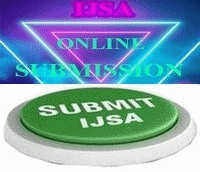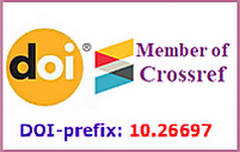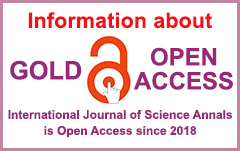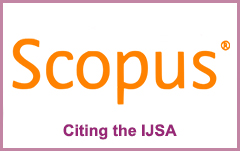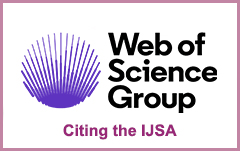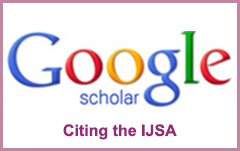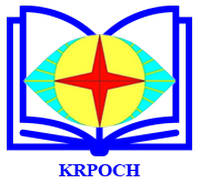| 1 College of Education, Bulacan State University, Philippines |
Abstract
As we know, the educational curriculum refers to academic content taught in schools or a collection of lessons, assessments, or a particular program or course taken on by students (Alanazi, 2016). Granting it is essential to note what a curriculum will achieve, what students will do and use to learn, and what teachers will use to teach the class; however, as to Crowley (2021), the curriculum is in no way neutral—it, at all times, mirrors ideological views.
From a learner-centered ideology, it is presumed that education manifests itself in drawing out people's inherent goodness and capabilities for growth (Schiro, 2013, pp. 5–6). As a teacher wanting to operate in this ideology, I believe the learners have their own abilities for growth. This ideology is all about bringing out the competency within them. On the other hand, classrooms are busy public places; events are unpredictable (Ming-tak & Wai-shing, 2008, pp. 10–11). This requires the teachers to develop their range of classroom management strategies. Setting up a classroom is an essential part of teaching and learning. It involves designing the classroom atmosphere, rules, and expectations (Williamson, 2008, p. 3). Granting there is no sole way of managing a wide array of classrooms, fruitful classroom management is tied to student engagement and empowerment (Honigsfeld & Cohan, 2014).
Keywords
learner-centered ideology, learner-centered management, learning paradigm
References
Alanazi, S. (2016). Comparison of curriculum ideologies. American Research Journal of Humanities and Social Sciences, 2, 1–10. https://doi.org/10.21694/2378-7031.16021
Barr, R. B., & Tagg, J. (1995). From teaching to learning – A new paradigm for undergraduate education. Change: The Higher Magazine of Higher Learning, 27(6), 12–26. https://doi.org/10.1080/00091383.1995.10544672
Biggs, J., & Tang, C. (2011). Teaching for quality learning at university (4th ed.). The McGraw-Hill Companies. https://cetl.ppu.edu/sites/default/files/publications/-John_Biggs_and_Catherine_Tang-_Teaching_for_Quali-BookFiorg-.pdf
Crowley, C. B. (2021). Curriculum ideologies. In Oxford Research Encyclopedia of Education. Oxford University Press. https://doi.org/10.1093/acrefore/9780190264093.013.1033
Garett, T. (2008). Student-centered and teacher-centered classroom management: A case study of three elementary teachers. The Journal of Classroom Interaction, 43(1), 34–47. https://www.jstor.org/stable/23869529
Honigsfeld, A., & Cohan, A. (2014). Preface: The universal challenges of classroom management. In A. Honigsfeld, & A. Cohan (Eds.), Breaking the Mold of Classroom Management: What educators should know and do to enable student success (pp. xv–xviii). Rowman & Littlefield Education. https://library.lol/main/EA2C68E7DC001BE15AEA3134FFBF676A
Jones, L. (2007). The student-centered classroom. Cambridge University Press. https://mail.brettwilkin.com/phocadownload/StudentCentredClassroom/jones-student-centered.pdf
Ming-tak, H., & Wai-shing, L. (2013). Classroom management: Creating a positive learning environment. Hong Kong University Press. https://doi.org/10.5790/hongkong/9789622098886.001.0001
Schiro, M. S. (2013). Curriculum theory: Conflicting visions and enduring concerns (2nd ed.). SAGE Publications Inc. https://mehrmohammadi.ir/wp-content/uploads/2021/09/Curriculum-Theory-Conflicting-Mi.pdf
Williamson, J. A. (2008). Literacy in the student-centered classroom: A practical approach to setup, design, and implementation. Rowman & Littlefield Education. https://library.lol/main/6241BBB24BE50B5011DC2EA76AF8779B
Ignacio Avelino Jr. G. – https://orcid.org/0000-0003-1012-8350;
| |
APA
Ignacio, A. Jr. G. (2021). Revisiting learner-centered ideology, management, and paradigm. International Journal of Science Annals, 4(2), 50–52. https://doi.org/10.26697/ijsa.2021.2.6
Harvard
Ignacio, A. Jr. G., 2021. "Revisiting learner-centered ideology, management, and paradigm". International Journal of Science Annals, [online] 4(2), pp. 50-52. viewed 25 December 2021, https://culturehealth.org/ijsa_archive/ijsa.2021.2.6.pdf Vancouver
Ignacio A. Jr. G. Revisiting learner-centered ideology, management, and paradigm. International Journal of Science Annals [Internet]. 2021 [cited 25 December 2021]; 4(2): 50-52. Available from: https://culturehealth.org/ijsa_archive/ijsa.2021.2.6.pdf https://doi.org/10.26697/ijsa.2021.2.6




